Mississippi poised to vote out America's last Confederate state flag as US faces reckoning on race
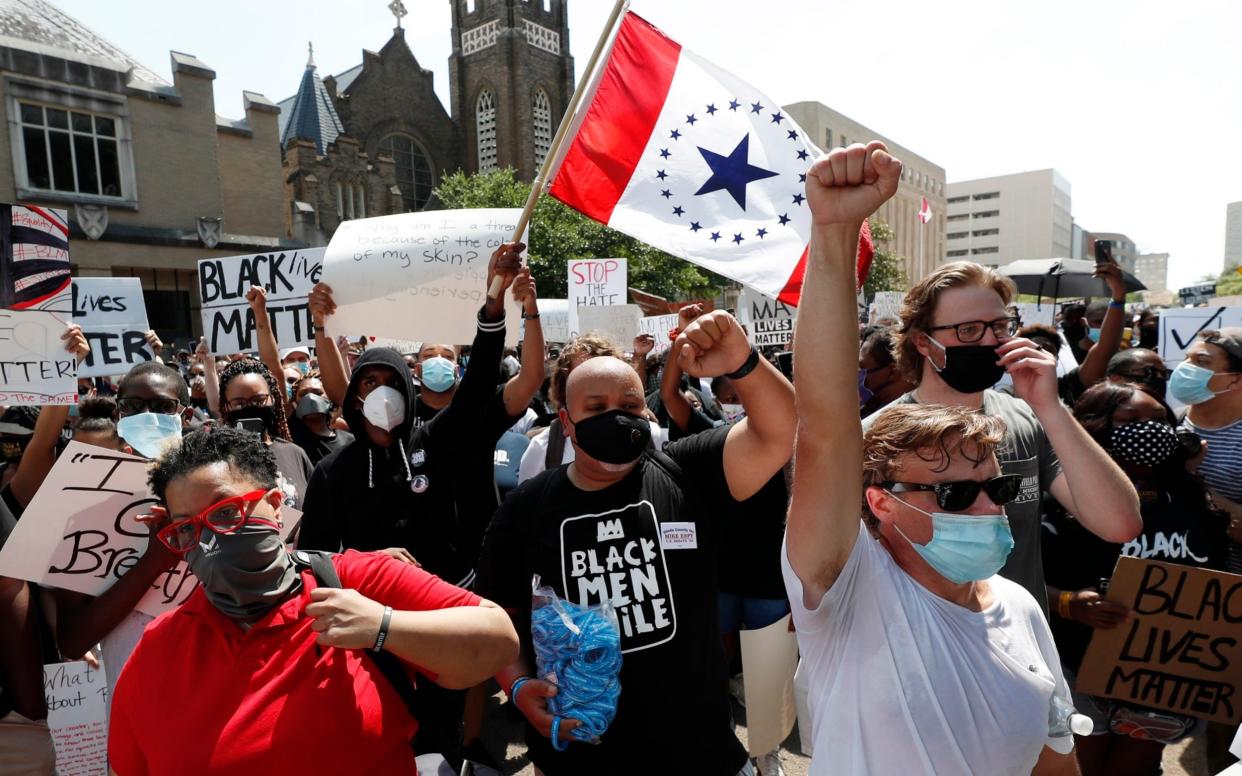
Petal, Mississippi, is not the sort of place Black Lives Matter protesters come marching.
One of the last major rallies held in Petal, which is nearly 90 per cent white, was organised by the Ku Klux Klan.
Yet in recent weeks it has been surprised by the largest demonstrations ever seen in the small 10,000-population city.
“During the civil rights movement you had large groups of protesters, but they were almost always local black residents and when there were white people they were from out of state,” said Lisa Foster, a white resident of Petal. “Now, you have local black and white Mississippians coming together - I never thought I'd see the day that would happen here.”
The demonstrations are illustrative of an unprecedented shift in public opinion on racial injustice in the wake of the May 25 killing of George Floyd by a white police officer in Minnesota.
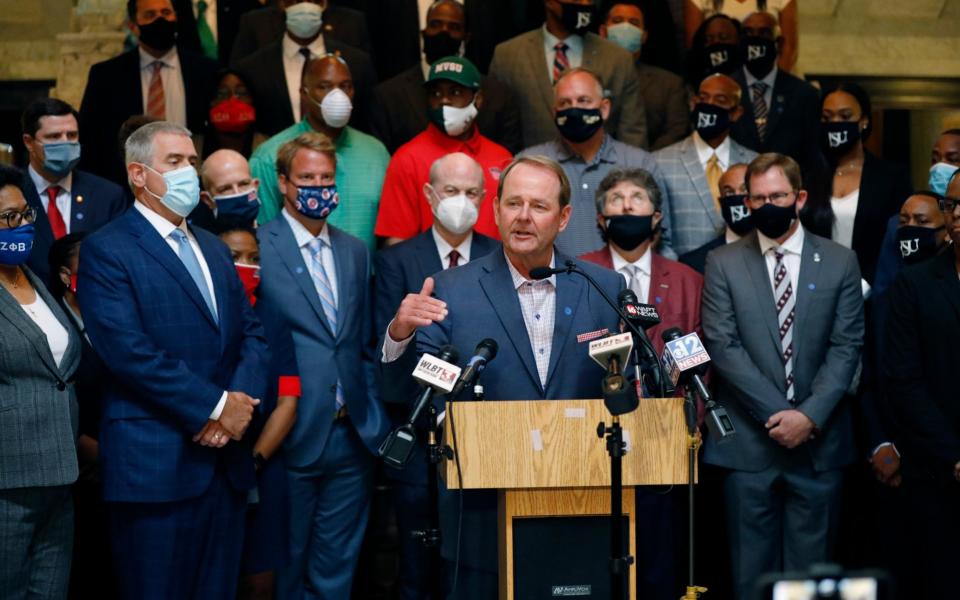
So great has the momentum for change been in the deeply conservative Southern state that its legislature has been pushed into holding a vote on a new state flag. Mississippi’s flag is the last-remaining one to incorporate the Confederate battle emblem and its reinvention would close another chapter on America’s so-called “original sin”.
“It’s Time” read the advert taken out in the local newspaper this week by businesses and community leaders. From Walmart to the Mississippi Baptist Convention, which has 2,000 churches and half-a-million members - just about every major force in town put their name to the demand. Even Lucien Smith, the Republican Party chairman, has come out in support.
“This entire state is screaming for a change,” said Philip Gunn, the state Speaker of the House. “The image of our state is at stake here, ladies and gentlemen. The nation is watching. They want to know what we as a state stand for.”
The State House of Representatives and Congress voted on Saturday to allow consideration of a bill creating a new design. A debate on the bill could come as soon as today.
Calvert White, one of the organisers of the Black Lives Matter (BLM) protests in Mississippi, told the Telegraph the flag serves as a “perpetual reminder” to black Mississipians that they “live in a state rooted in racism.” “We need to get all Confederate imagery out of our vision in order to get it out of our psyche,” he said.
In 2001, 64 per cent of voters in Mississippi - the last state by same way to officially abolish slavery - chose to keep the flag in a statewide election. But many believe a 2020 referendum would have a different outcome.
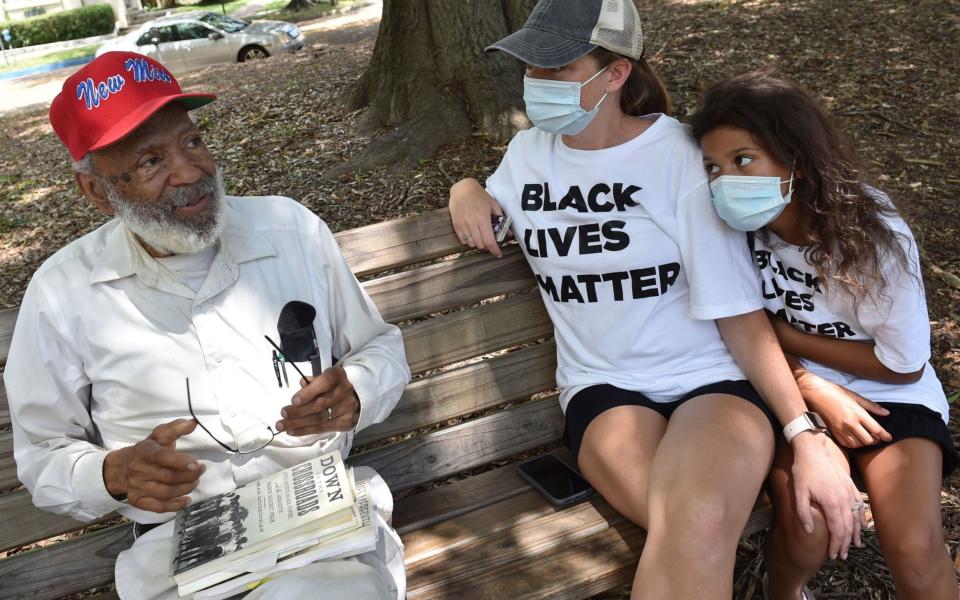
“I noticed how many white people there were out protesting, I wasn’t expecting this and it gave me hope,” said Timothy Young, another BLM organiser. “At one point a journalist came over to a white protester and asked her a question. She stepped aside and told them black voices needed to be heard. That was a real moment for me,” he said.
Mr White, 20, from Jackson, added that while it would be “naive to think everyone in Mississippi is with us marching,” recent events showed Petal was no longer a safe space for racists and bigots.
Residents did not take to the streets immediately after Mr Floyd’s death, but almost a week later in reaction to comments made by Mayor Hal Marx on Twitter. He said he “didn’t see anything unreasonable” in the video showing the out-of-work bouncer being pinned to the ground by a police officer’s knee for nearly nine minutes until he stopped breathing. "If you can talk, you can breathe," he wrote, suggesting he died of a heart attack.
Petal’s aldermen called on him to resign, but Mr Marx refused, saying he would not bow to “the mob”.
“It made us look bad,” said Ms Foster, 37, a military historian. The city's reaction showed, she said, that men like Mr Marx were increasingly becoming outliers.
“One of our aldermen in Petal has even changed his viewpoint on having police wear body cameras, after speaking with protesters. He had previously been against purchasing them for the police department," she said. “I've never heard racial injustice discussed this much in Mississippi before now."
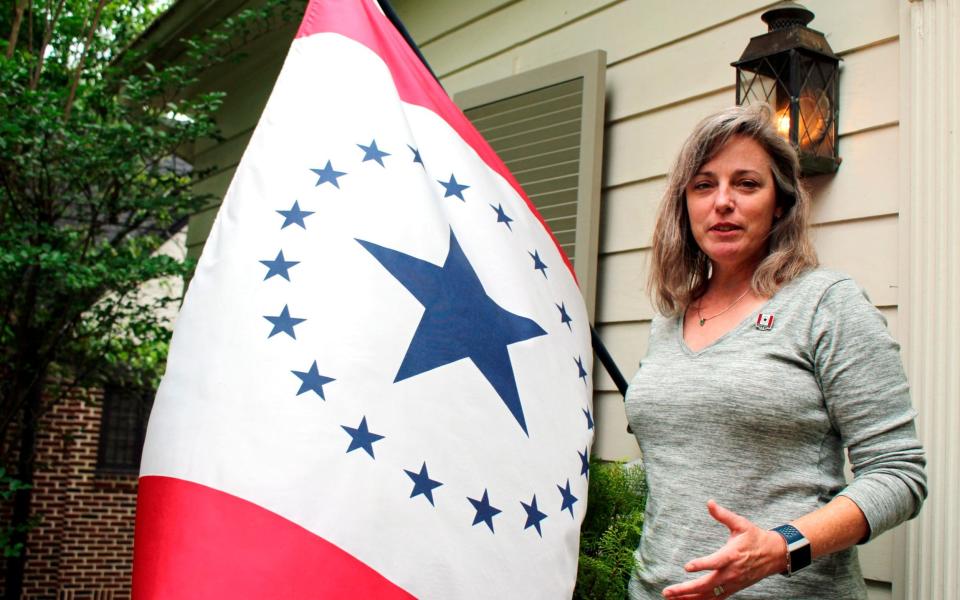
Nationwide polling shows attitudes are shifting all across America.
After the 2014 killing of 12-year-old Tamir Rice in Cleveland, 33 per cent of Americans said that police were more likely to use excessive force against black suspects; 58 per cent disagreed, according to Monmouth University.
Two years later, the fatal shooting of Philando Castile near St Paul, Minnesota, yielded a similar response. But in the wake of Mr Floyd’s death, 57 per cent of Americans had come to believe that the police were more prone to use excessive force against black people.
Meanwhile, an astonishing 76 per cent of Americans, and 71 per cent of white Americans, now say that discrimination against racial and ethnic minorities in America is a “big problem”.
“This number is crazy,” Hakeem Jefferson, a Stanford University political scientist, said of the figure. “When I saw it, I thought, ‘This is a polling error’.”
Nearly one-in-10 American adults reported having participated in protests in the last month, which would translate to around 25 million people. Blacks represented about 15 per cent of the protesters, Asians and Hispanics slightly less, and whites around three-fifths.
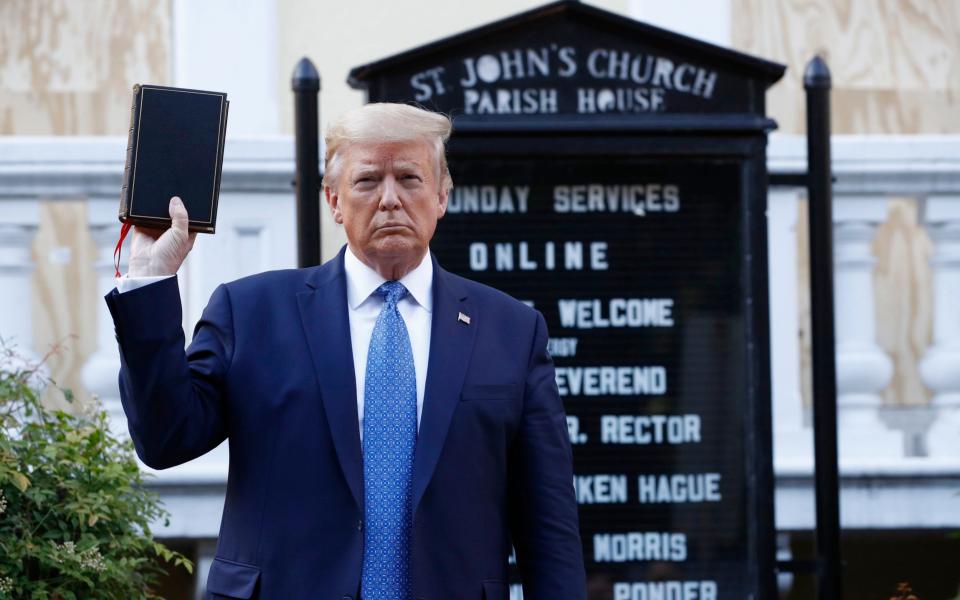
In response, Donald Trump has called demonstrators "terrorists" and channelled Richard Nixon as he positioned himself as the “law and order president”.
Mr Trump, just as Mr Nixon did, appears to have badly misjudged the public mood.
Mr Floyd’s killing came a day after a video went viral of a white woman calling the police on a black birdwatcher in New York’s Central Park, who had complained about her dog being off its lead in a lease-only area. She told the operator that she felt threatened by the “African American man,” an epithet she repeated hysterically over-and-over again.
For the millions across Americans who watched it - stilled by the coronavirus - it prompted wrenching conversations about racism and white privilege.
Opinion seemed to shift even further when largely peaceful protests erupting across the country were met by police brutality. They saw officers beating up women, pushing down an elderly white man and throwing tear gas at demonstrators exercising their democratic right to protest.
Instead of striking a unifying tone, Mr Trump retrenched the divisive language that played to his base.
The New York Times said he sounded like a “cultural relic”, who was not only detached from the some 25 million out protesting, but the country’s political middle and even some of his staunchest Republican allies.
Mr Trump put himself up against even his own chairman of the Joint Chiefs of Staff in refusing to rename military bases named after Confederate officers who fought against the Union during the Civil War.
Recent polls show barely one-third of Americans support Mr Trump’s handling of race relations and 53 per cent say they have gotten worse on his watch.
Mr Trump has not yet tweeted about the vote in Mississippi, but most Mississippians no longer seem to care much about what the president thinks.
“There are always going to be those who want Mississippi to stay in the past but they are getting to be fewer and fewer,” said Ms Foster. “I've heard others say lately if Mississippi can change, and is ready for change, then the entire country is. I think that’s right.”

